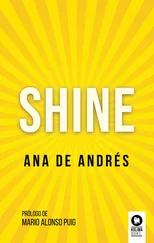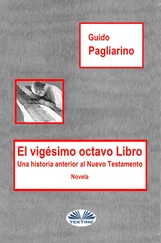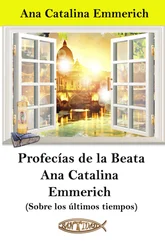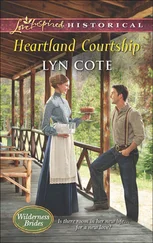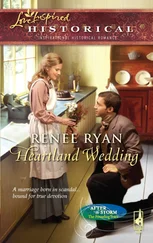Petrona returned the next day. She left the lunch basket by my door and then began to vacuum. Chicken bones flew out of my hands as I quickly devoured the food. They landed where my tears had pooled on the rug the night before, grease dissolving in salty residue. I am a careful, civilized eater. Near starvation could explain my lapse that day. More ominously, it may have been the beginning of the degenerative slide that propelled me under this bed, encased in a crumbling, inhuman shell.
After brushing my teeth, I wheeled myself out to the landing and called Petrona. She came trailing the vacuum cleaner. I asked her to turn it off. She did so in slow motion, a one-second delay for every century of Aztec enslavement. Things were back to normal. For an instant, I imagined McCabe strolling in the garden.
Petrona did not know anything, or claimed not to. Miss Maké had not mentioned any trip. Petrona had no idea where the food they cooked with the church señora had gone. It was still in the kitchen when Petrona had left that evening. She had not come to work because of the flood. Even getting here today had taken her twice as long because the Elmira bridge was still closed, and she had to cross using the only bridge that was still open, in a neighboring county about twenty miles to the East. As I suspected, the food the three of them had cooked together on the eve of Thanksgiving was not the quail banquet McCabe and I had eaten during our last dinner together, of which Petrona was the sole, proud creator. I praised her inspired cooking, item by item, the way a restaurant reviewer would, observing the ingenuity of the sauces in one sentence, the perfect braising of the meat in another, and the presentation in yet another. There is nothing I liked more than praising a subordinate like Petrona for an exceptionally well-executed job, the accomplishment of the quail banquet redoubled by the pleasure of congratulating myself on my shrewd judgment in hiring her.
The mysterious Thanksgiving Eve meal, the one that had disappeared from the house without a trace, had been cooked under Miss Maké’s direction, with Petrona as executioner, and Mrs. Crandall as witness. This, according to Petrona. Mrs. Crandall just sat on a stool by the refrigerator and chatted with Miss Maké. About what, Petrona could not tell, given her limited English. They laughed a lot (I knew that: I could hear them from my room). Petrona did not know the names of the food she had helped prepare: one was some sort of vegetable stew, another a rice dish, a third some sort of dumplings. The dessert had been some kind of tiny balls covered with confectionery sugar. As to what Mrs. Crandall had brought wrapped in a blanket, Petrona was on firmer ground. That was the main dish, which took all day to cook, and turned out fine even if it was not prepared the way Petrona would have done it, with bitter oranges and cumin, garlic and oregano: “It was a suckling pig,” Petrona said.
In every nineteenth-century novel there comes a moment when the main character is left speechless. This was mine. Did I notice a malicious glint in Petrona’s eyes after she dropped the depth charge, or was it a glimmer of pity, or a reflection of the sun streaming in through my bedroom window? She stood frozen, holding the gray vacuum coil, a Mumbai python charmer about to feed a mouse to her star performer. I don’t know how long we were in this face-to-face frieze, me in the wheelchair of defeat, placed in a slightly elevated position to signal my rank, she displaying to me the snakelike machine. I may have lost consciousness for a while, because the next thing I remember is dialing McCabe’s gallery on the Judge’s black Bakelite phone. A voice assured clients in several languages that their calls would be quickly answered. I hung up without a word. The voice was not McCabe’s, as it had always been—a personal touch for the immensely rich—but that of a male computer surrogate. Was that a good or a bad sign? I couldn’t tell. Had it been her voice, I would have left a message for her, which she may or may not have answered. Either way, it would have advanced my investigation. On the other hand, I might have gotten hooked on her voice, and spent the rest of my days calling back at briefer and briefer intervals just to hear her for thirty seconds. Craving not just her voice, but increasingly her flesh.
Mrs. Crandall had slapped me in the face. She had stolen a four-legged creature that belonged to me, to people like me, not to her, never to her kind, never. She had brought Shangri-La to Round Hill, bypassing me, the gatekeeper. From a place she knew nothing about and had never set foot in, to a place she knew nothing about but in which she resided, thanks to her native husband. She had had the chutzpah to give the emblematic creature—my creature—to McCabe; it was a gift that should have come from me. She had done all of this under my nose. Brazenly. Don’t tell me she would not have done any of this if she had known where I was from! You know perfectly well she would have. The only difference is that she would have tried to curry my approval, to show off how down she was on all things spic. Mrs. Crandall had challenged me with the suckling pig. To what end? She was also telling me something about McCabe and something about herself—perhaps something about them both, together. I didn’t know what. Her message was opaque. I would have to extract it directly from her.
I am proud of myself for the way I handled Mrs. Crandall. I kept my anger in the icebox until I was ready to confront her face to face. After I let it out, I did not allow it to deter me from my goal of bringing McCabe back. It helped that Mrs. Crandall had tapped an old and boring reservoir of hatred, one that I had wallowed in even before I learned to read and write. This is what the tattered scrolls mired at the bottom of that fecal pit proclaimed: White people despise us. No exceptions: homo and hetero, Rapturous Evangelicals and Malthusian fanatics, resettlement camp bait and fortified city dwellers, sympathetic elites and xenophobic white trash, and every white piece of shit within and between them, whether true whites or honorary whites, including but not limited to Beulah-ish spics, gooks, niggers, and chinks; white-nosing heebs, yids, and kikes; gyros, polacks, russkies, guineas, and Kosovars and their Serbian torturers fresh off the boat after their third genocidal war in a century, thankful to America for this gift of a common ground, at last. There are epithelial and stylistic differences among them, but their contempt for us is one and indivisible. We, the other people, reciprocate with bitterness, wrath, disdain, delusion (pretending the cabrones del coño de su puta madre don’t exist), melancholia, murder, suicide (drugs, alcohol, holding up a 7-Eleven in plain daylight), circling the raza wagons so tightly that we asphyxiate, wearing ridiculous and spurious folkloric rags, and so on. We are not nice, we, the other people. We know it, and that makes us even more choleric. We would like to be nice like Mrs. Crandall. Hatred eats you. Repressing hatred, however, eats you twice as fast. I am only skimming the reservoir that Mrs. Crandall stirred, just to give an idea of how deep and old it is. At a moment like this, I think of sly, hypocritical Petrona and her five-hundred-year-old bilious cesspool. Am I her Mrs. Crandall?
I went looking for Mrs. Crandall, not to avenge a slight, but to find McCabe. (The slight I was willing to stuff in the bottomless reservoir for future use. It is important to clarify this in view of how things turned out.) I spent the rest of that week teaching myself how to walk again, aided by two of the Judge’s walking sticks. It was sweaty and painful. Relearning to stand on my own two feet took several hours. I wore the Judge’s wonderfully padded slippers over two pairs of soft socks. In between rehab sessions, which lasted seconds at first, then minutes, I slapped on my feet everything I could find in McCabe’s nurse’s bag, trying not to remember the way she narrowed her eyes in ferocious concentration while she changed my bandages. My knees also had begun to heal. They were still swollen and oozing, but I did not have to walk on them. I congratulated myself for my stoicism. I had been a stoic child. Then I had lost that quality under the indulgent gaze of scores of girlfriends. Perhaps it was coming back. At the end of the week, my feet were more or less functional, though they remained paler and flatter, their shape hesitating between foot and stump. I was never again able to walk without pain. Later, as my body began to change, stump became the predominant shape. But that was still in the future.
Читать дальше





